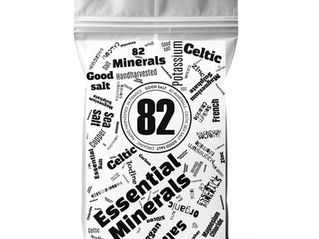The debate between breastfeeding and using formula has been a contentious issue among parents who prioritize providing the best nutrition for their child. While some parents opt for infant formula due to its convenience, others, particularly mothers who struggle with insufficient breast milk production, are compelled to turn to formula milk.

Therefore, discovering that the majority of infant formulas available on the market contain not only one, but FIVE harmful metals is not only concerning but also sheds light on the unnatural and harmful nature of these heavily processed infant products.
Research on Infant Formulas Reveals Presence of Heavy Metals in All Samples
Conducted in May 2024, the research was a joint effort between two non-profit organizations, GMOScience and Moms Across America.1 Led by Michelle Perro, MD, Zen Honeycutt, and Stephanie Seneff, Ph.D., the study sought to identify the existence of harmful metals in various infant formula brands.
The researchers examined 40 samples derived from 20 formulas produced by reputable local and global brands like Enfamil, Gerber, and Similac, among others. Various samples were labelled with terms such as "Organic," "Non-GMO," "Grass-fed," and "Hypoallergenic." The majority of the formulas were dairy-based, with only a single soy-based variant. Each formula underwent testing on two separate occasions.
The study findings were alarming. Not only did all samples test positive for aluminium and lead, but the researchers also found that:2
Six out of 20 formulas tested positive for all the heavy metals being tested
35% of the samples tested positive for cadmium, 55% were positive for mercury and 57% were positive for arsenic
Four samples had mercury levels that were higher than the allowed limit in drinking water by the U.S. Food and Drug Administration (FDA)
Cadmium levels in both samples of one formula are nearly twice higher than the allowed amount in drinking water
The aluminium levels in a goat's milk baby formula were at 41,000 ppb — this means it was 4,000 to 40,000 times higher than other metals in the formulas tested. It also exceeds the limits set by the FDA for the maximum safety level of aluminium for a preemie
Breast Is Best for Both Babies and Mothers
The increasing understanding of the scientific basis for the "breast is best" campaign has resulted in a rise in breastfeeding rates in the United States. In 1971, only 24% of mothers started breastfeeding after giving birth; by 2016, this figure had increased to 81%. Despite this progress, a study indicates that 60% of mothers still discontinue breastfeeding earlier than intended.
Discontinuing breastfeeding prematurely could mean that your child misses out on numerous health advantages, many of which persist well into adulthood. From a nutritional perspective, there is clear consensus that breast milk is the best source of nutrition for newborns and young infants.
Furthermore, breastfeeding has been linked to a reduced risk of overweight and obesity. Exclusive breastfeeding not only delays the introduction of foods that could contribute to weight gain but also promotes a healthy gut microbiome, which is crucial for lifelong well-being. According to the Global Breastfeeding Collective, these benefits underscore the importance of continued breastfeeding.
“Breastfeeding helps populate the child’s body with ‘good’ bacteria from his or her mother, which provide protection against excessive weight gain. Breastmilk contains hormones and other biological factors involved in the regulation of food intake that may help shape the long-term physiological processes responsible for maintaining energy balance.
Feeding of infant formula by bottle may interfere with a child’s recognition of satiety and thus lead to overeating.”
Adults who were breastfed during infancy were also found to have a 26% lower risk of becoming overweight or obese, as well as a lower risk of Type 2 diabetes, high blood pressure and heart disease
Mothers who breastfed also experienced profound benefits, such as:
Quicker recovery from childbirth — It helps return the uterus to normal size and reduces postpartum bleeding27 |
Reduced risk of breast and ovarian cancer28 |
Faster weight loss after childbirth — Producing milk burns approximately 450 extra calories each day, which helps mobilize visceral fat stores. |
Reduced risk of cardiovascular disease29 |
Reduced risk of postpartum depression30 |
Closer bond between her and her child, even beyond infancy31 |
































Comments